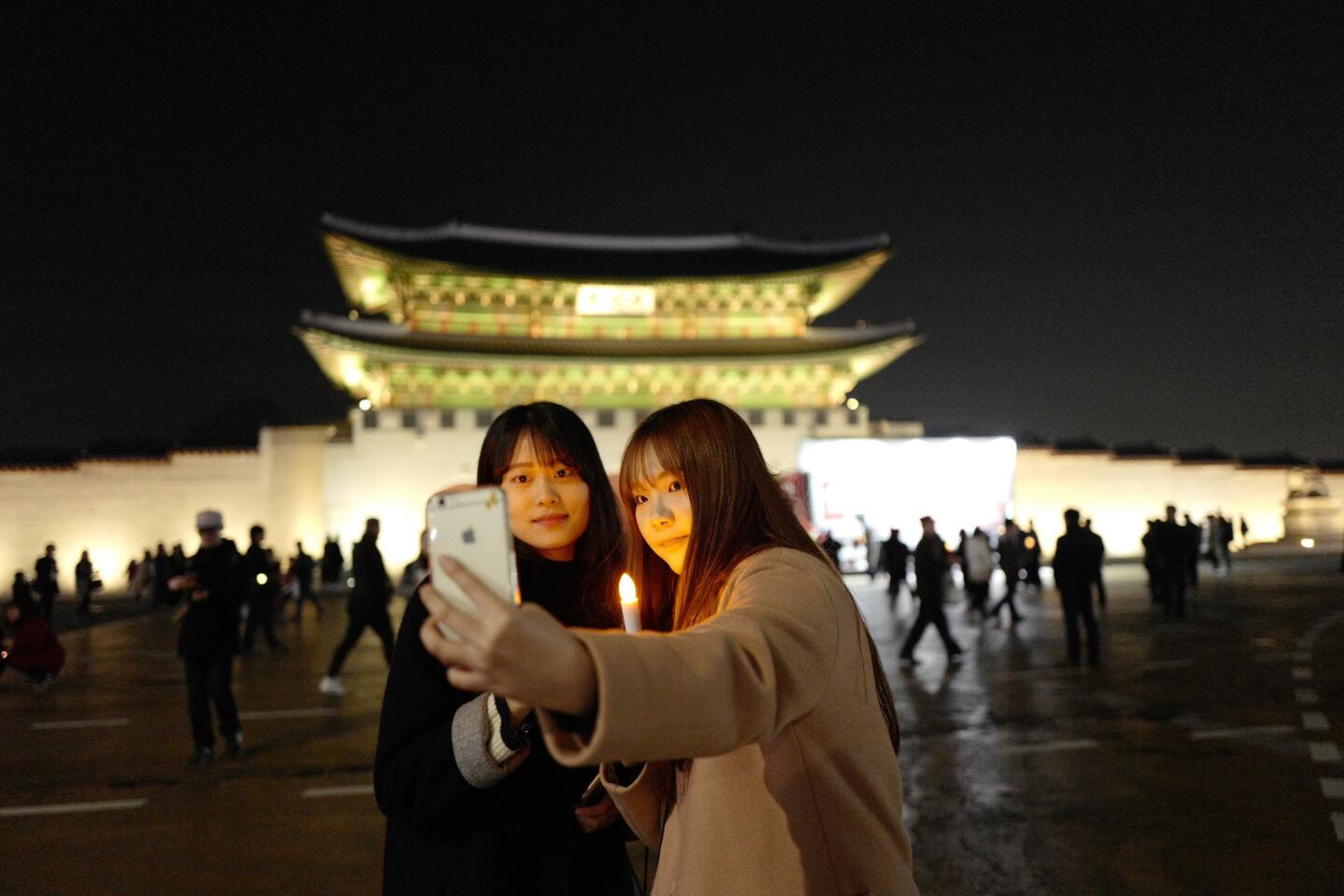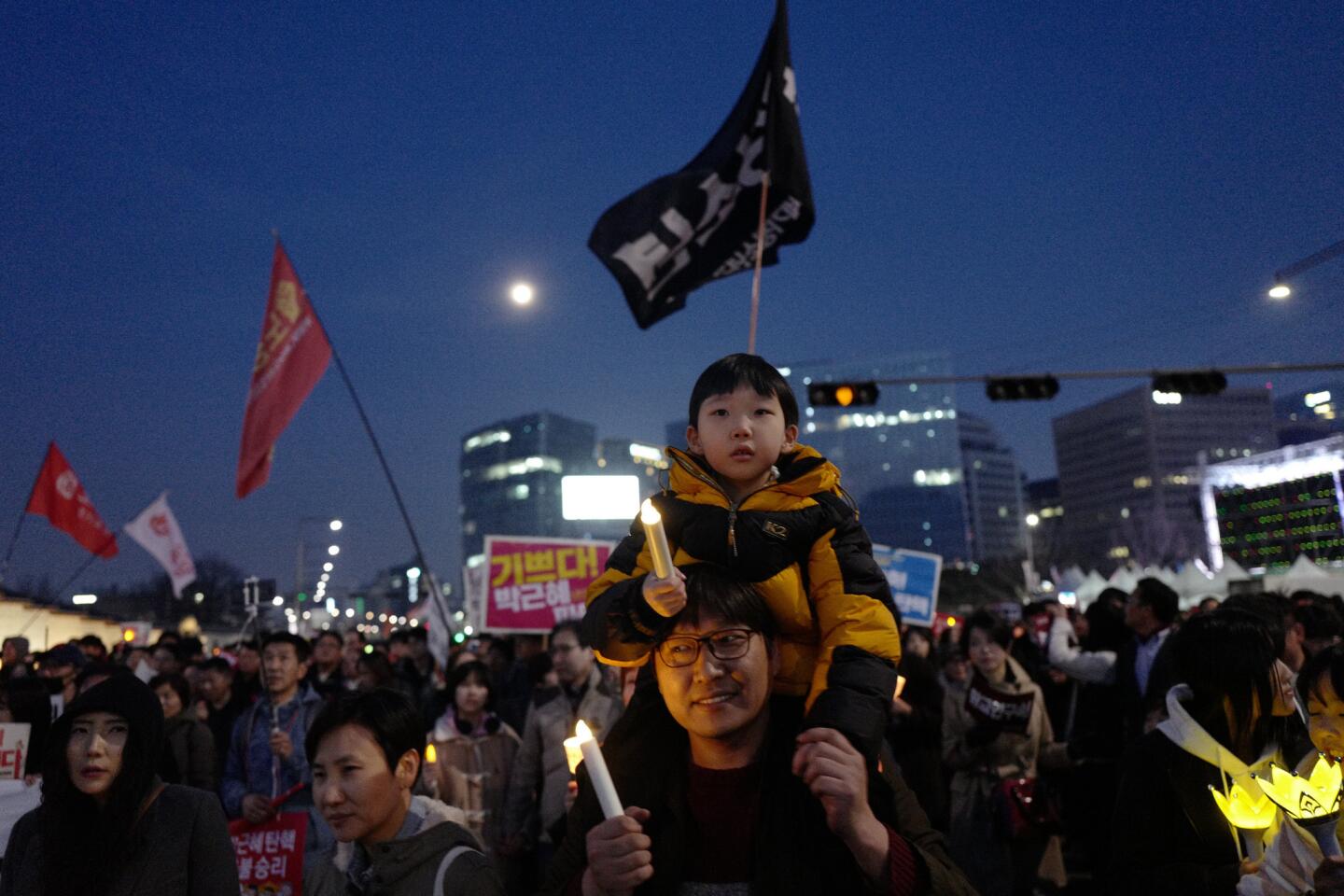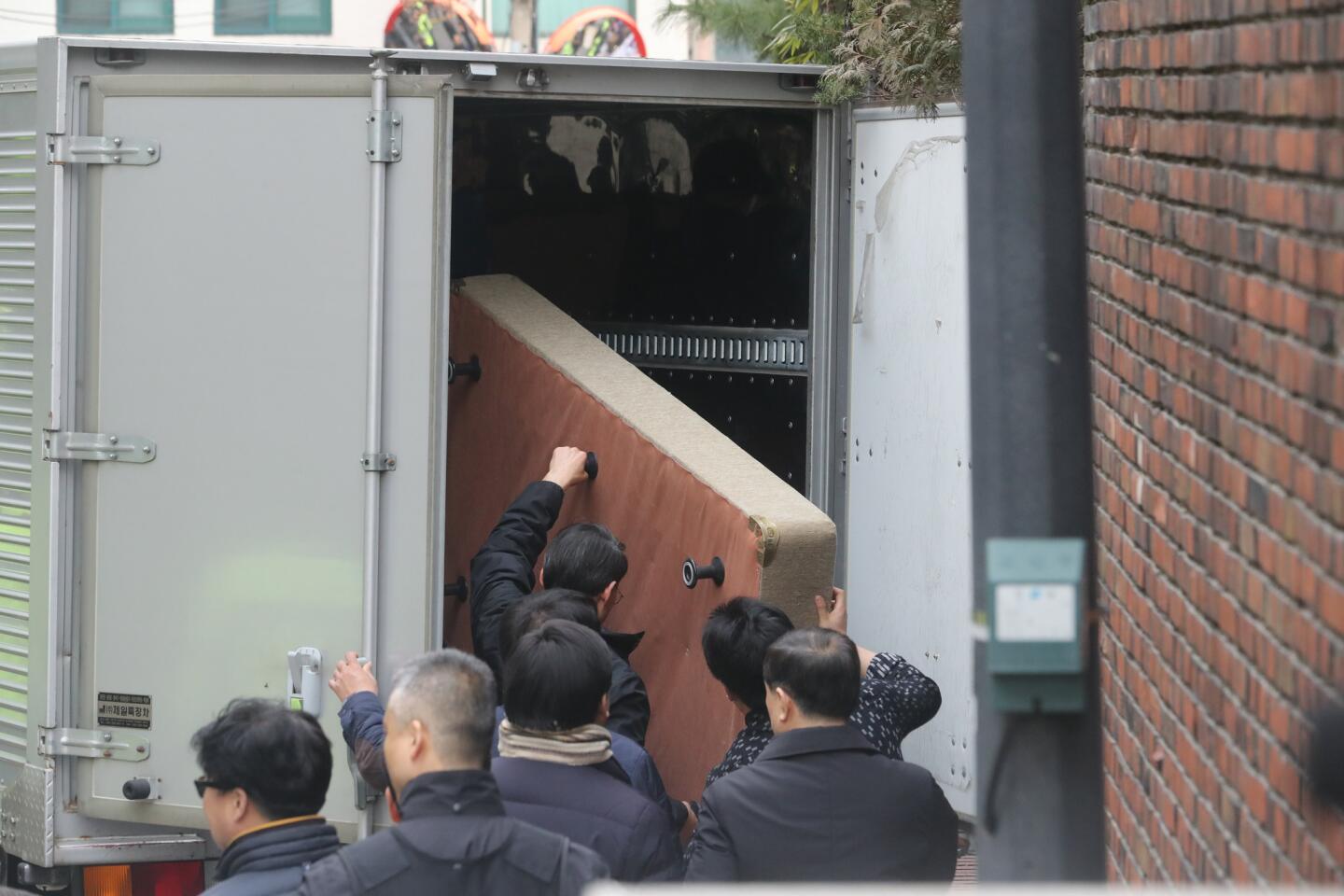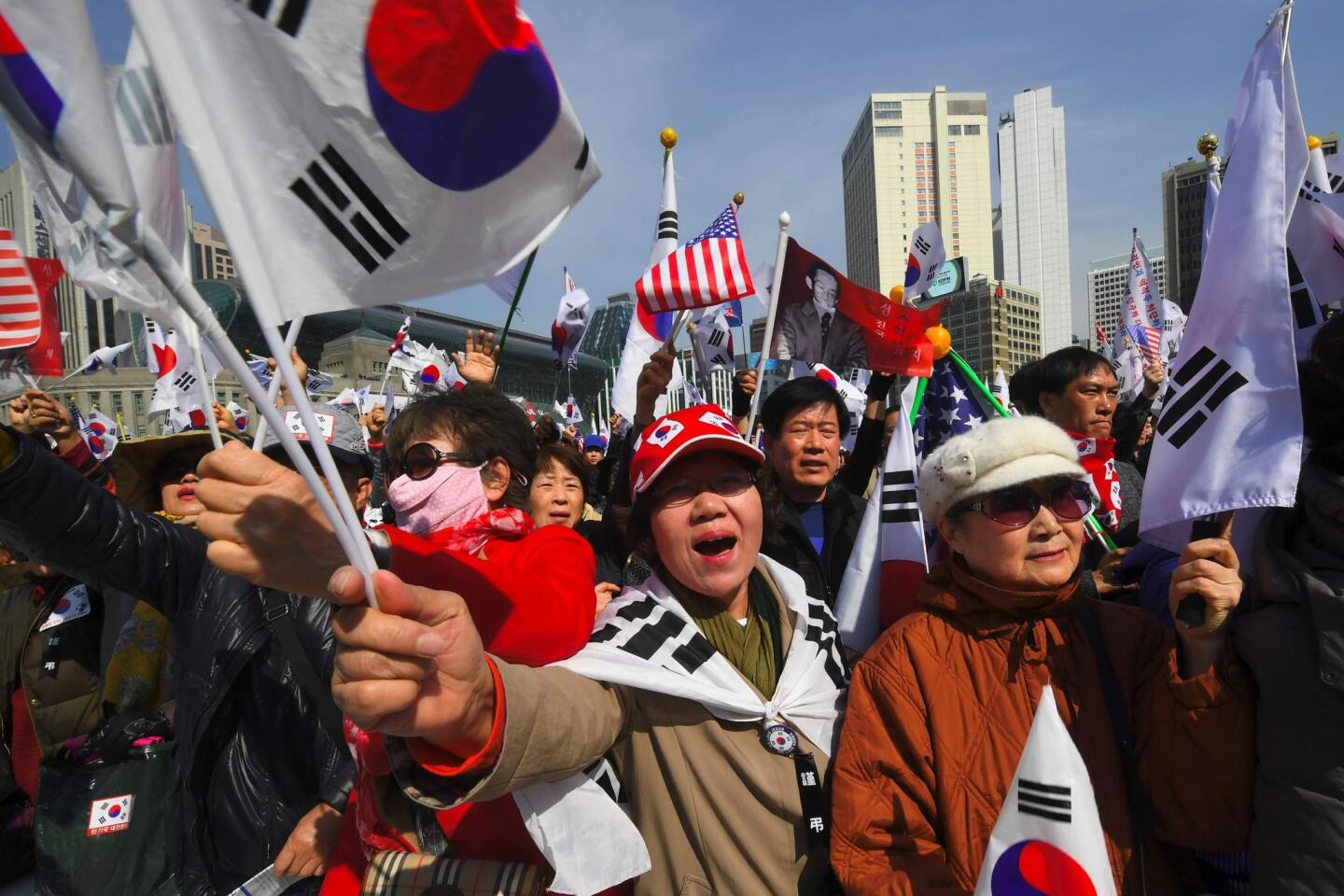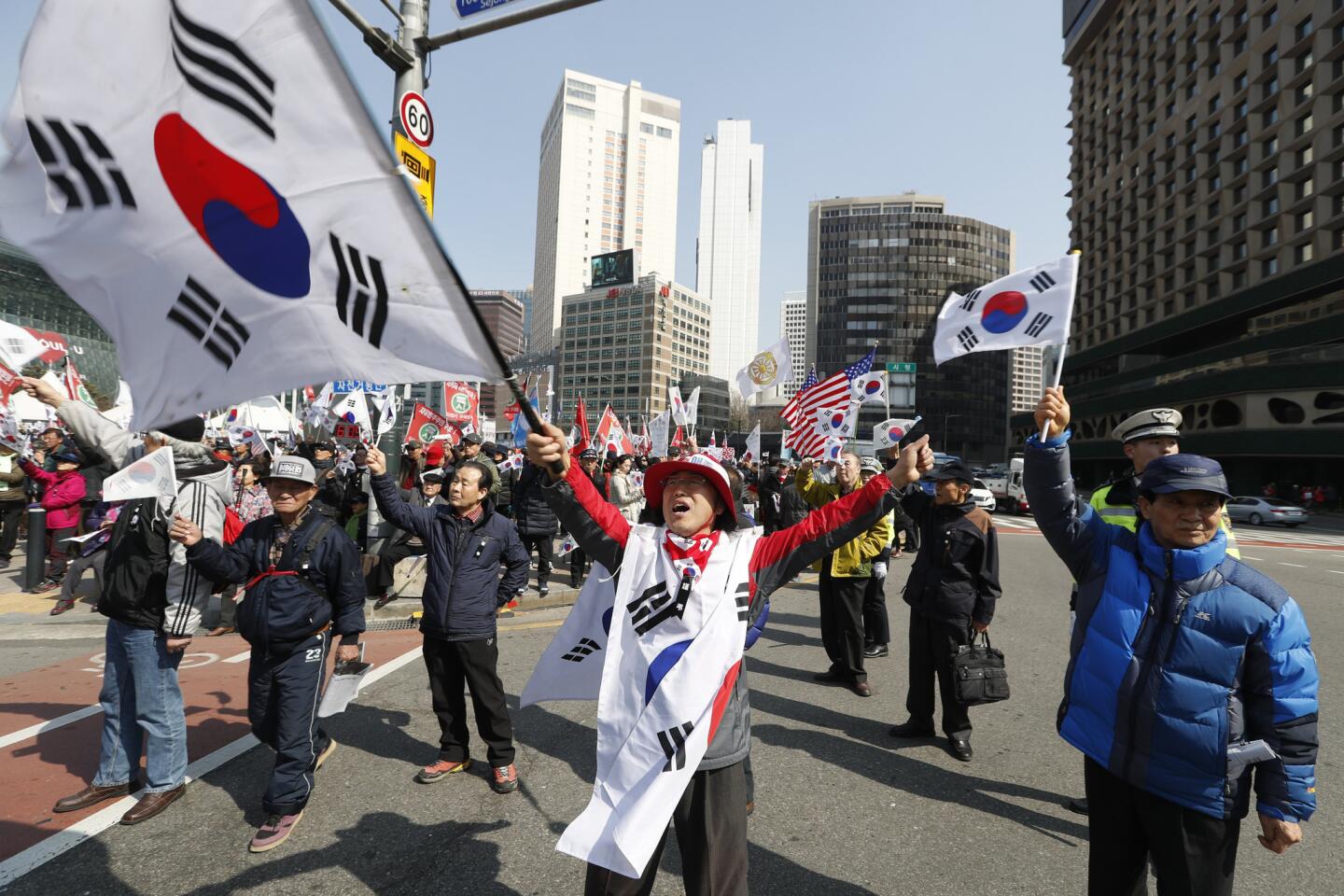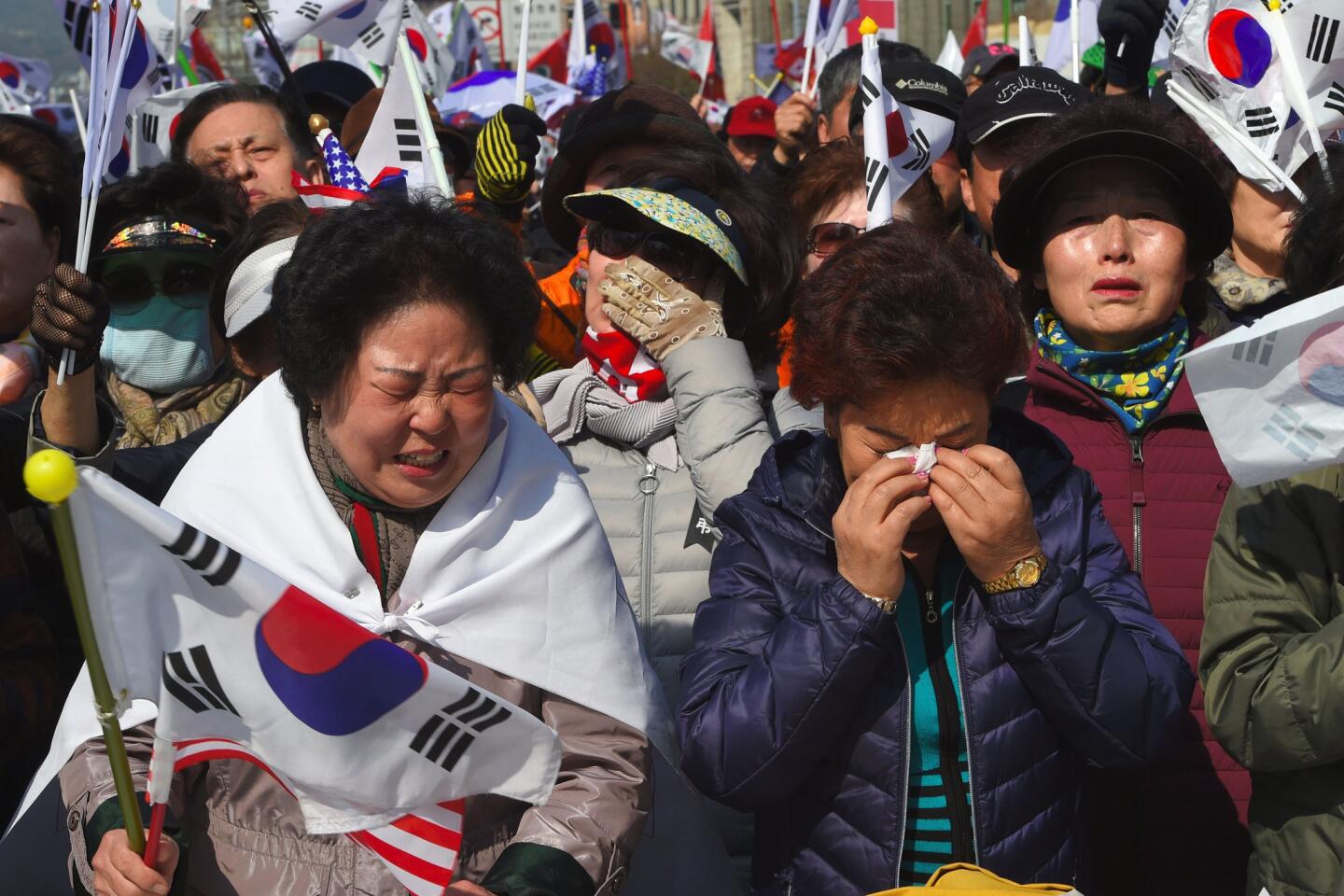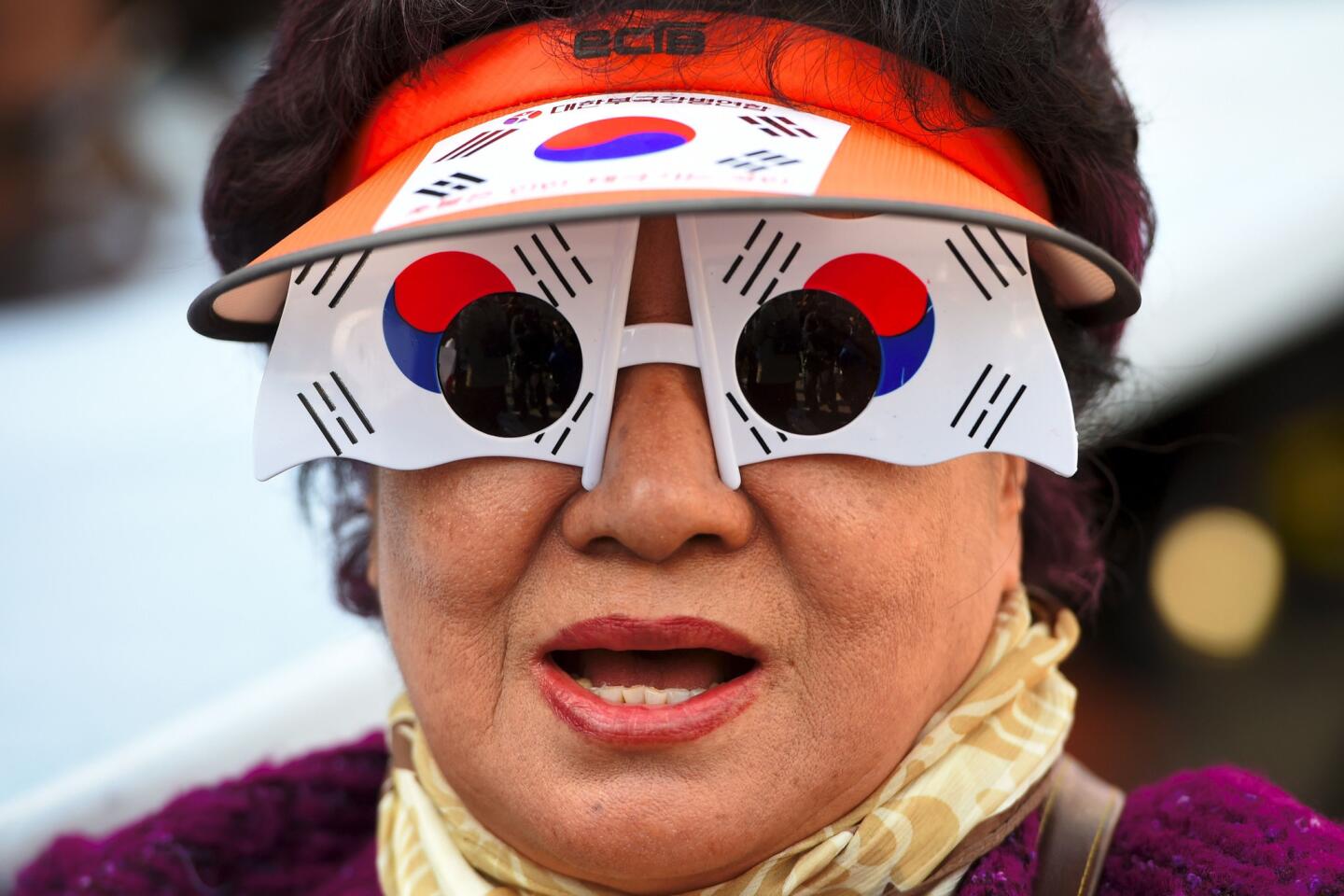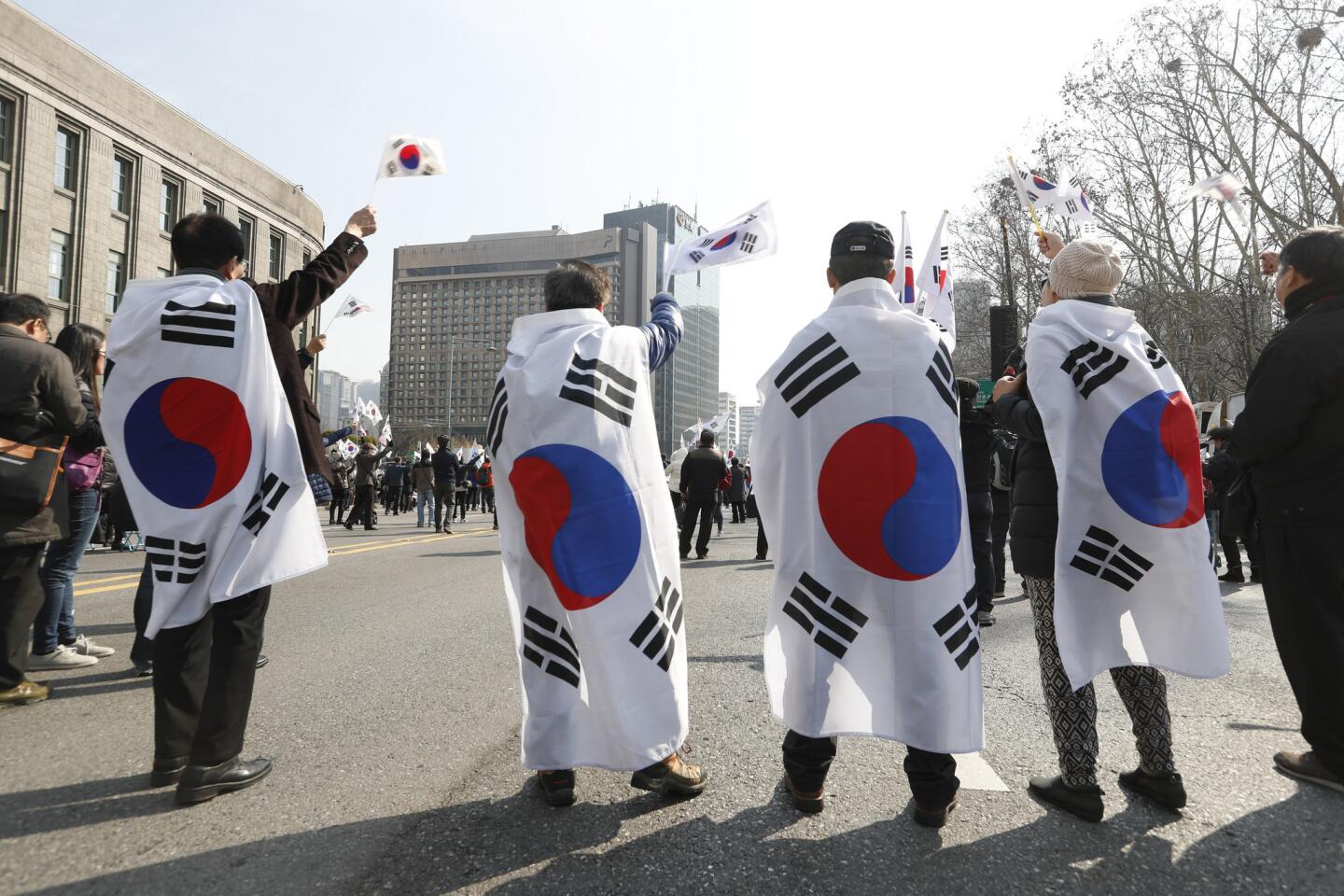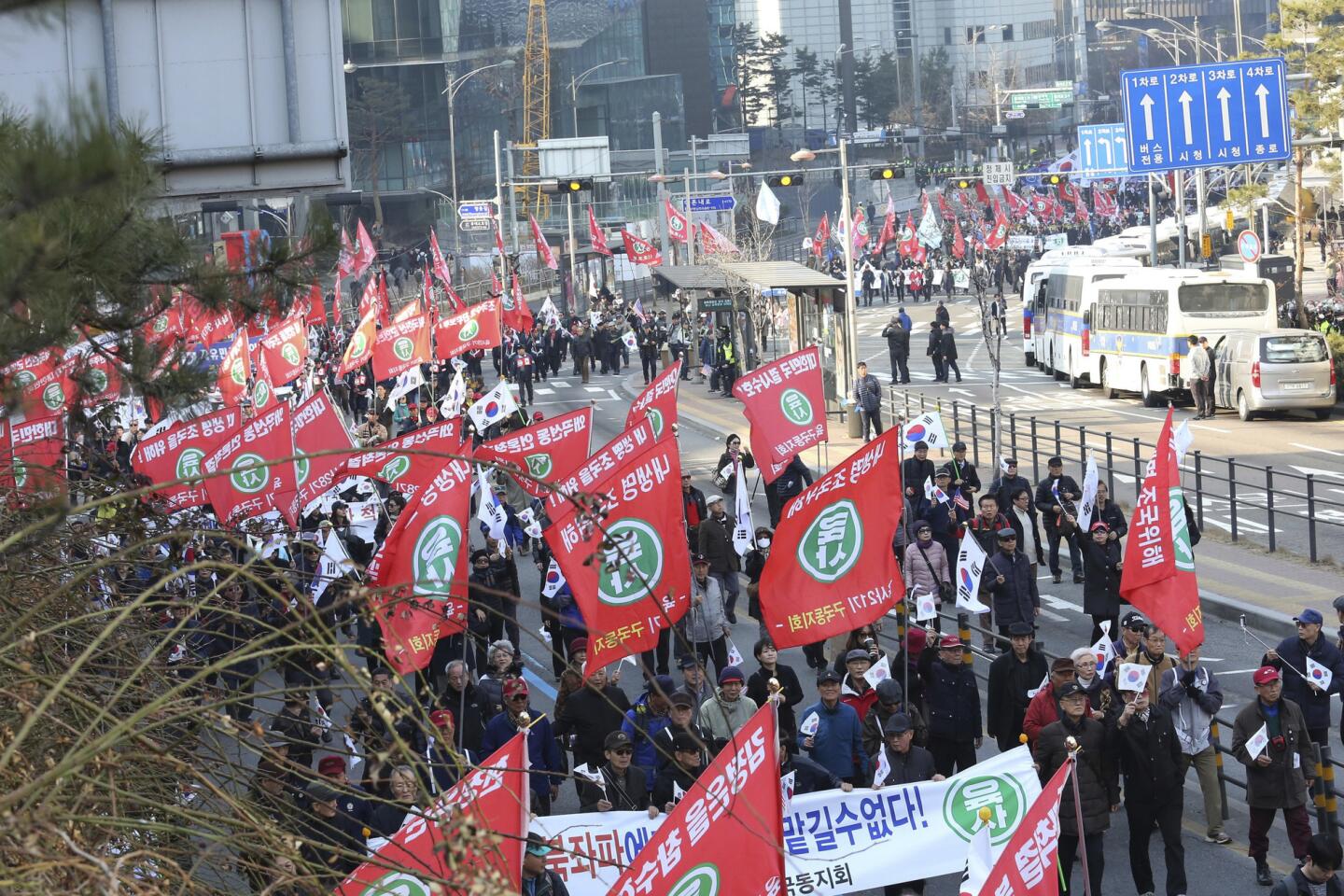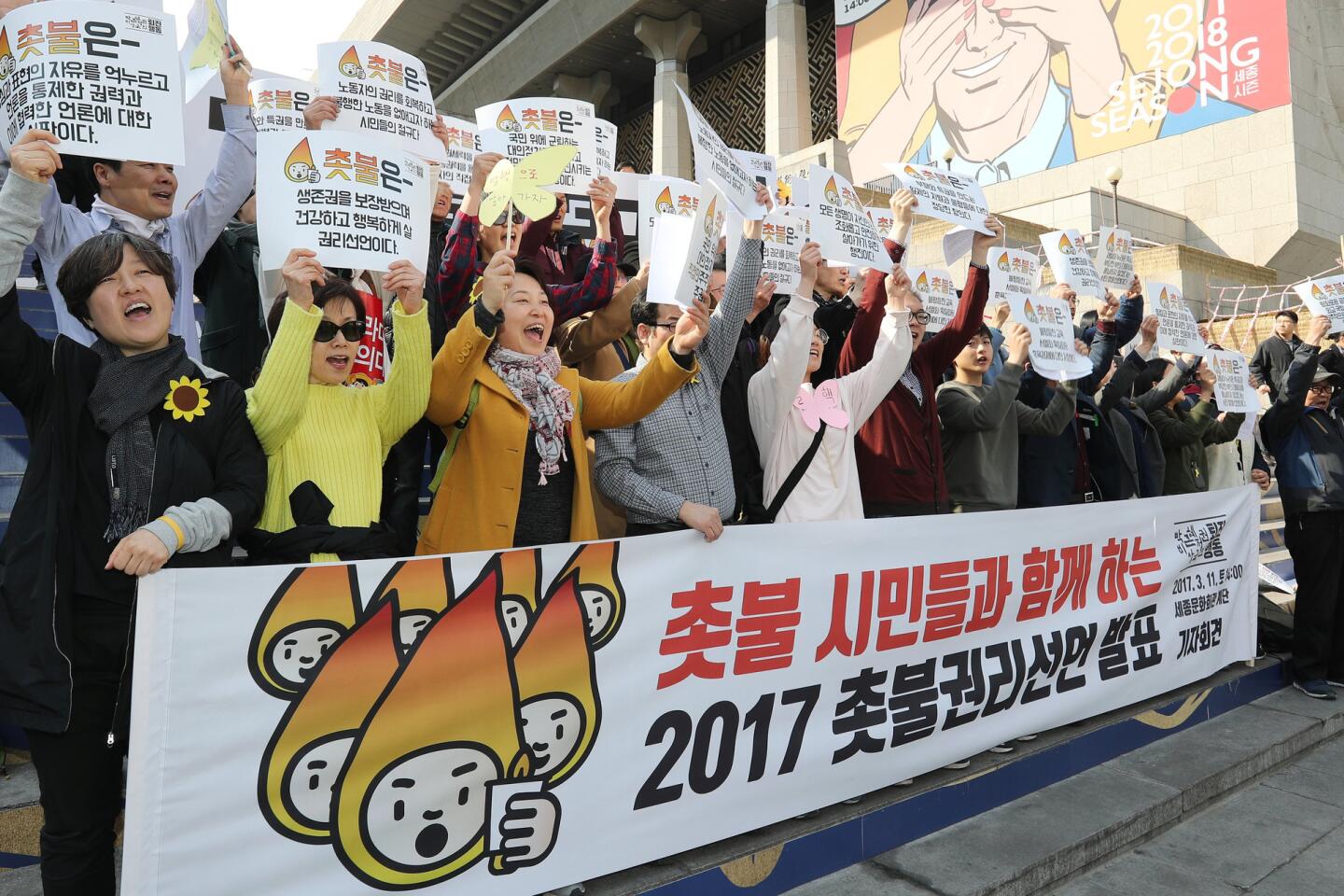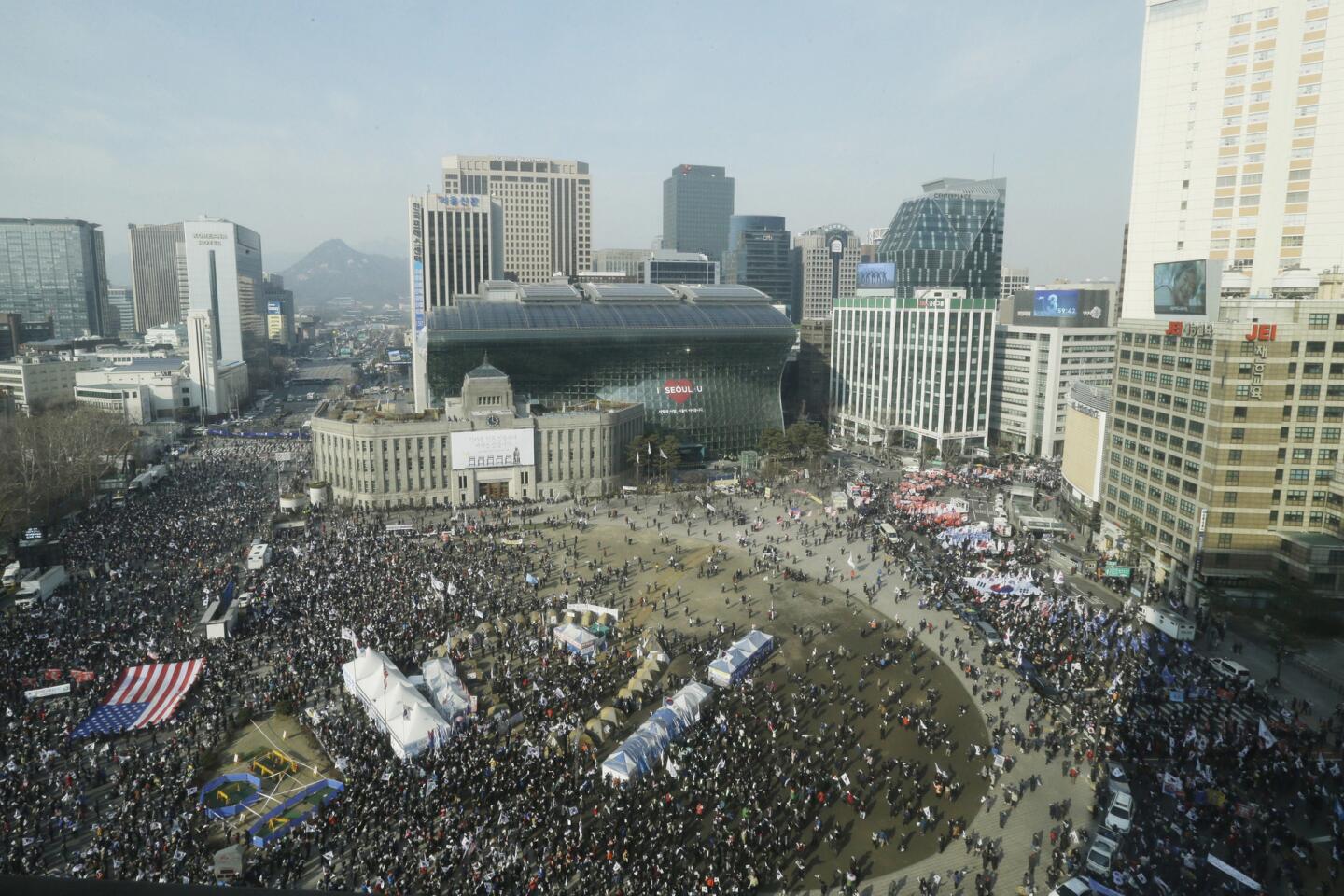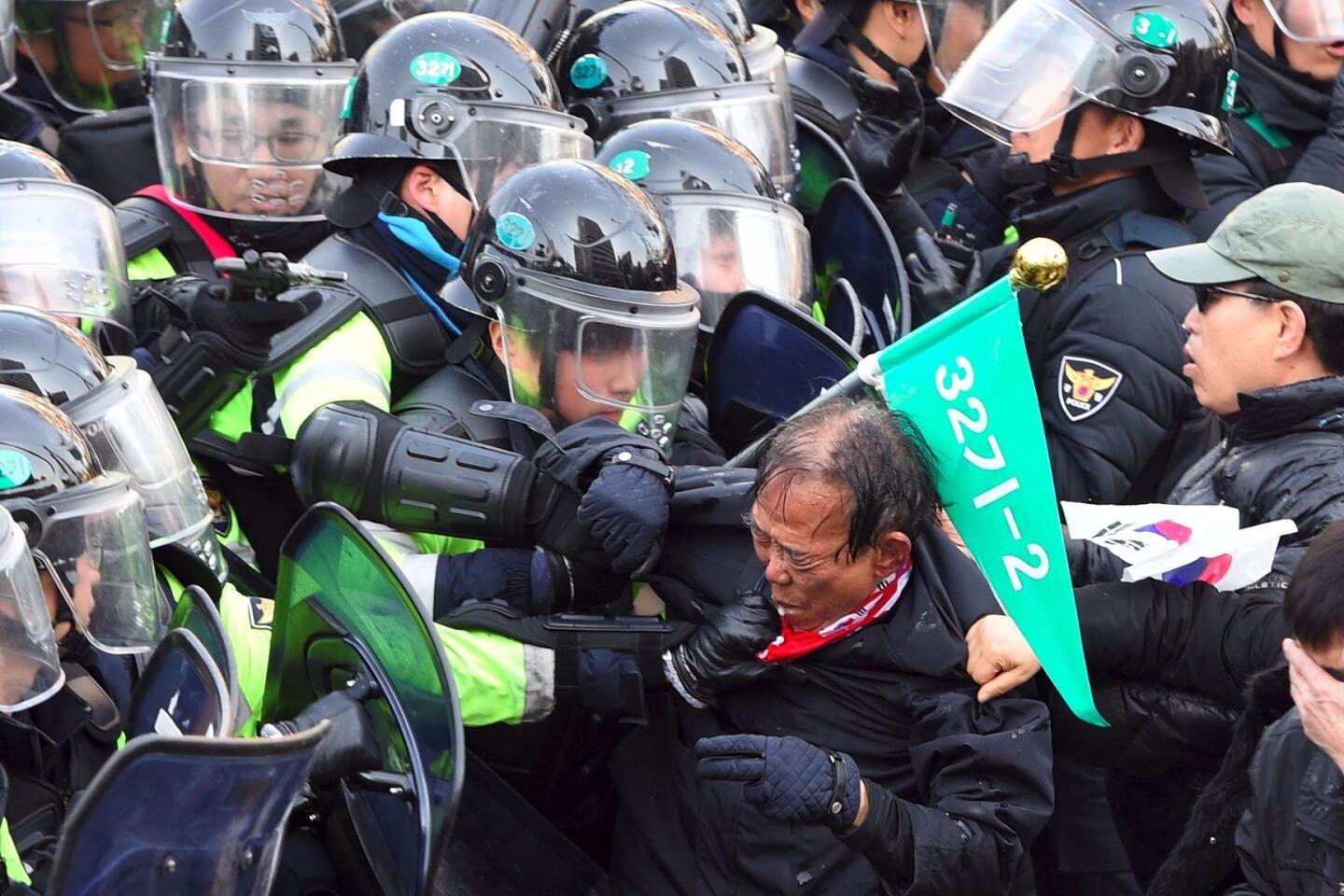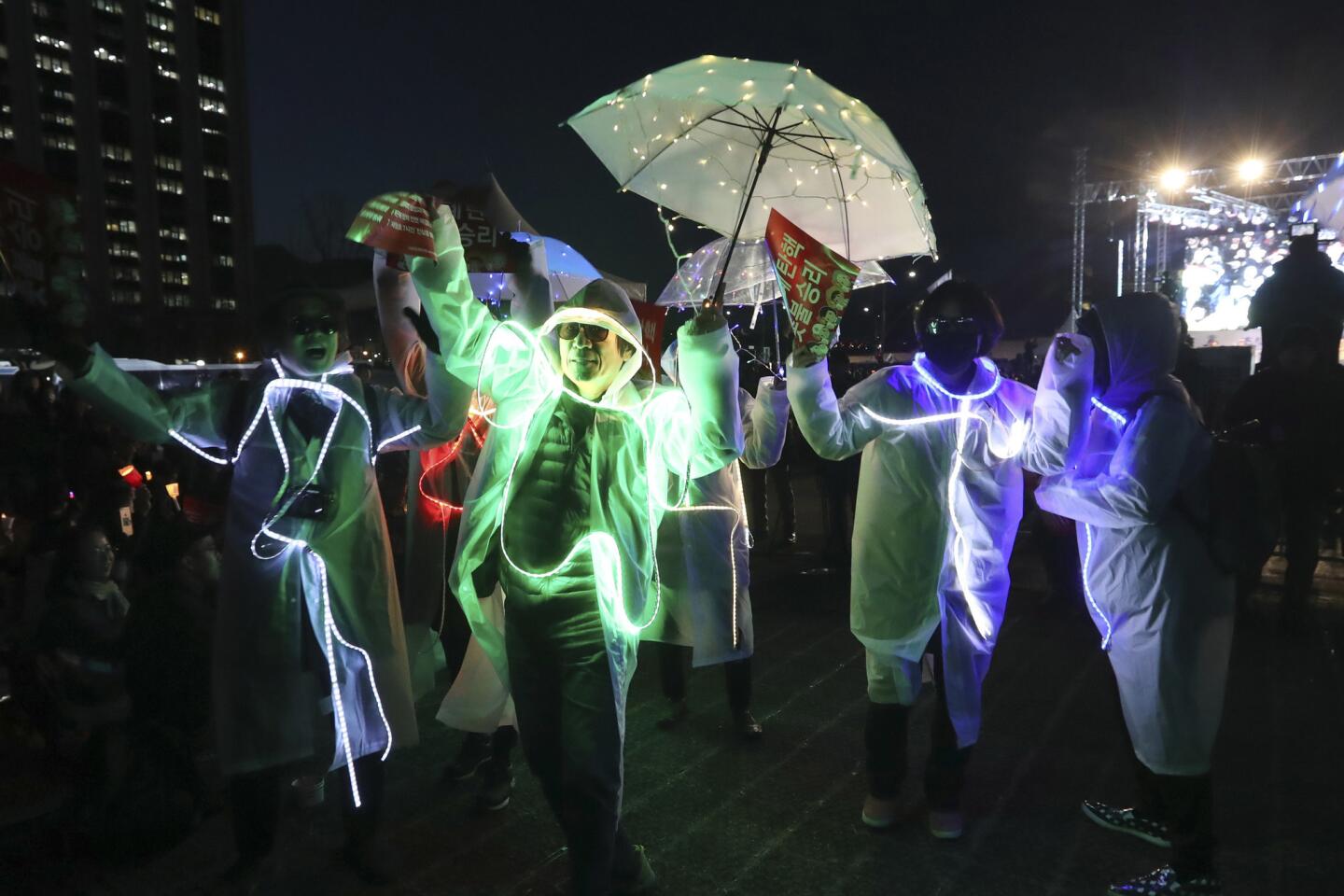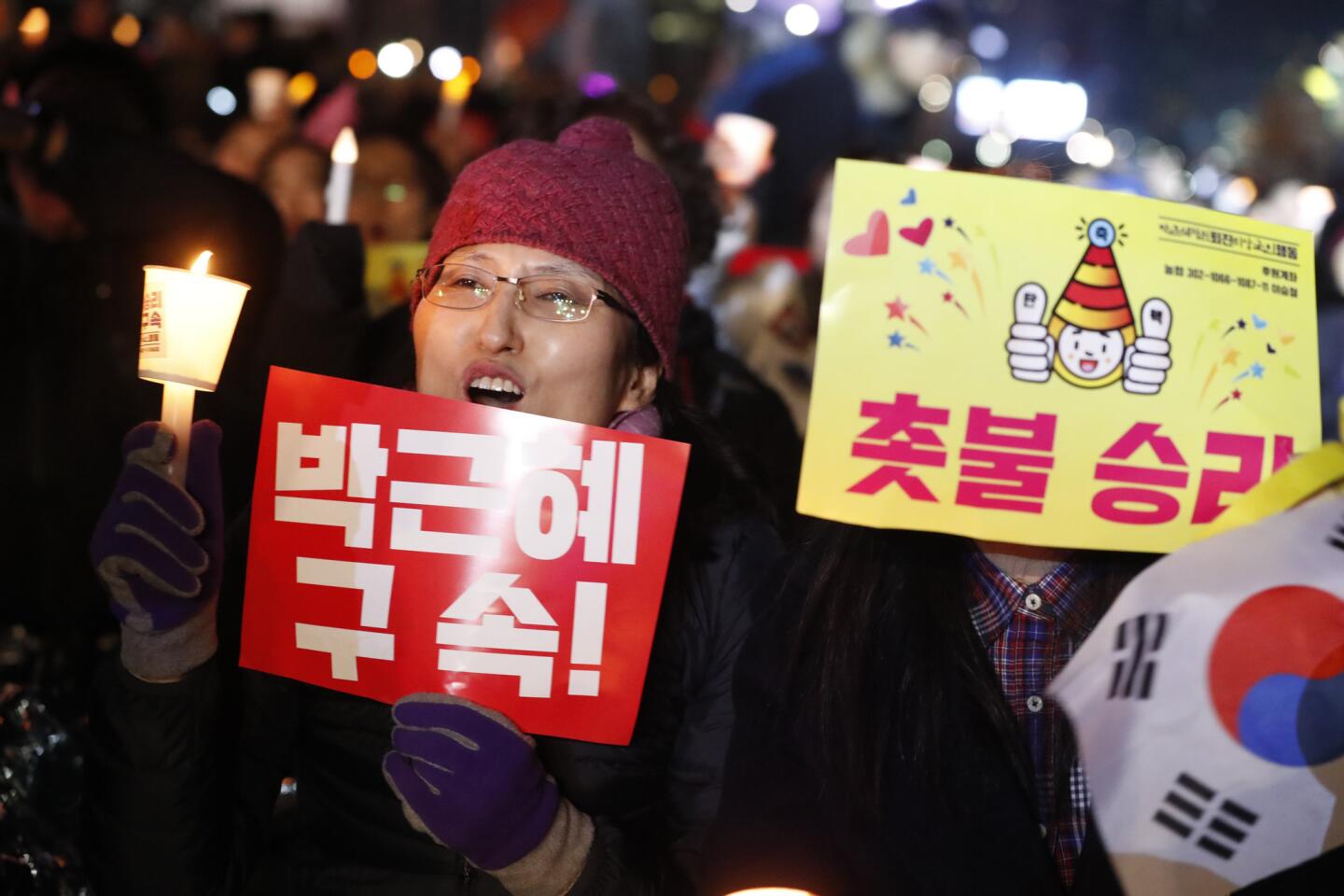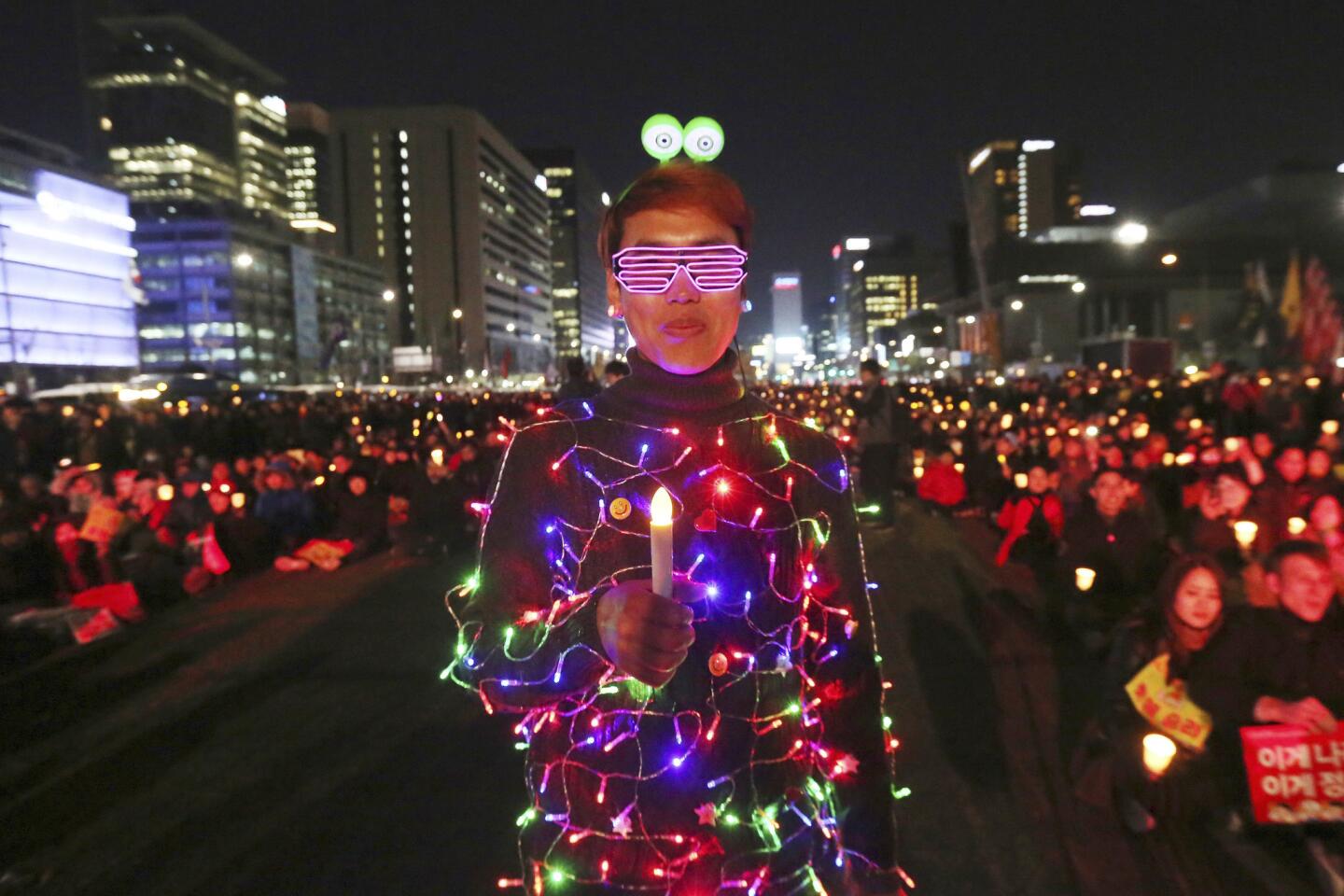President’s ouster caps months of discontent in South Korea, but will it change anything?
- Share via
Reporting from SEOUL — President Park Geun-hye’s long-anticipated ouster from office Friday will probably do little to address the growing list of complaints that many South Koreans have about their troubled nation.
Asia’s fourth-largest economy has experienced slower economic growth, higher youth unemployment, rising income inequality and endemic collusion between leaders in business and government — all while internal critics complain that its dysfunctional democracy seems incapable of reform.
“Park became the focal point for a number of grievances that have been going on for decades,” said David Kang, an international relations professor at USC who directs the university’s Korean Studies Institute. “I don’t think I’ve seen any indication that Korean society, politics or business is going to change.”
These issues, among others, helped swell the crowds of millions who flooded the nation’s streets in recent months as the burgeoning scandal that began last October mushroomed into a national crisis and, ultimately, the president’s removal.
Tens of thousands occupied a square in central Seoul on Friday to celebrate Park’s ouster after the country’s constitutional court found unanimously that the president had “violated the duty to safeguard the nation.”
Violent clashes broke out between police and some of Park’s supporters. About 30 people were injured, and three people believed to be protesters died, officials said.
Frustration with societal ills was perhaps why many national opinion surveys found that a large majority of South Koreans favored the president’s Park’s removal from office — if not her arrest — amid allegations that she had participated in a bribery scheme with the country’s most powerful conglomerate, the Samsung Group.
In impeaching Park last December, the National Assembly cited a list of allegations, including abuse of authority and influence peddling. But representatives also cited more political concerns, such as her handling of a ferry accident in 2014.
Park’s downfall began on Oct. 24, 2016, when a television network obtained a tablet computer containing evidence that a longtime Park confidante with no official role in government had edited her official speeches.
The revelation quickly turned into a massive corruption scandal, including disclosures that the confidante, Choi Soon-sil, used her influence with Park to extort money for her businesses from large companies, including Samsung.
Prosecutors later arrested Samsung’s de facto leader, Lee Jae-yong, on charges that he organized payments to Choi in an effort to gain support from Park for a controversial merger between two of his company’s affiliates.
Authorities also accused Park of bribery in the scheme, and she could be subject to legal action now that she has lost the prosecutorial immunity that came with the presidency.
Park became the focal point for a number of grievances that have been going on for decades.
— David Kang, an international relations professor at USC
One possible place for substantive change after Park’s removal could, of course, be the presidency itself. Park and her predecessor, Lee Myung-bak, were members of the ruling conservative party, now known as Liberty Korea.
Prime Minister Hwang Kyo-ahn, who since December has filled in as head of state during Park’s suspension, will continue to lead the nation for now.
But it’s possible that a more liberal candidate could win a special presidential election in early May. Some analysts believe that the conservatives have been deeply hurt by the scandal and could face a voter backlash.
An ideological shift at the top could have real implications for South Korean society, including how it deals with the advancing nuclear threat in North Korea and how it communicates with China, which has retaliated economically over Park’s plan to deploy an American anti-missile system.
“[Liberals] stand a good chance of winning and, if they win, would have a mandate — maybe not a sweeping one — to implement changes,” said Peter Kim, an assistant professor at Kookmin University in Seoul.
A welcome change for some would be reforming the system to prevent collusion between business titans and political leaders — a longstanding issue in South Korea that prosecutors cited in their investigative report in the Park case.
“There are relationships the public doesn’t see between politicians and corporations,” said Kim Chan Young, a student at Dongguk University in Seoul. “Presidential candidates are saying they will root out corruption, and I’m hoping that this will come true.”
With her removal, Park — South Korea’s first female leader — also becomes the nation’s first president to lose office through impeachment. She has repeatedly apologized — most recently for her “carelessness” — but never defended herself before prosecutors or the courts.
Her supporters may have projected onto Park their nostalgia for the bygone era of her father, a former military dictator. Park Chung-hee reigned in the 1960s and ‘70s, when the nation began to emerge from devastation and poverty after the Korean War and turn into an Asian economic powerhouse.
Her detractors see her as a symbol of something else entirely.
“This impeachment proceeding somehow has become a referendum on the leadership of Korea for the dysfunction of the economy, politics and social cohesion, all embodied in the person of Park Geun-hye,” said Ryan Song, a law professor at Kyung Hee University in Seoul.
The court’s ruling will have other consequences for the disgraced leader: She will be stripped of the $10,000 monthly pension usually afforded former presidents and must leave the presidential complex, known as the Blue House for its distinctly colored tile roof.
She has her own residence in Seoul’s posh Gangnam district, about eight miles to the south.
But Park’s foreign media spokesman, D.J. Kim, said the former president planned to remain at the Blue House at least until Saturday, citing the difficulty of moving in and around the complex because of the post-verdict protests.
Park lived there as a young woman, serving as de facto first lady after a North Korean sympathizer killed her mother in an ill-fated attempt on her father’s life. He was assassinated by his spy chief in 1979, adding another layer of tragedy to her life.
After serving in the assembly and working as a conservative party organizer, she narrowly won the presidency in 2012. But she never developed the ability to shape South Korean policy as did her famous father.
Her tenure, even before the corruption scandal, was marked by controversy and hurt by what some observers say was a secretive and aloof governing style — a style perhaps learned by observing her father, who seized power in a coup and ruled as a strongman.
Other than the scandal, perhaps the defining moment of her time in office was the 2014 Sewol ferry disaster in which nearly 300 people — most of them high school students — perished when the vessel capsized en route to Jeju Island.
It was an intensely painful event for many South Koreans and led to widespread public criticism of the authorities. Distraught parents pressed for a more robust investigation, and Park’s presidency never really recovered.
Questions about her whereabouts during a crucial seven-hour period while the disaster unfolded continued to haunt her. Indeed, the court hearing the impeachment case demanded an accounting of what happened during that time. Park refused to answer.
Woo Jiann, a student at Seoul National University who said she attended five anti-Park street rallies, cited the Sewol incident as one of her chief concerns about the ousted leader — and the nation’s “corrupt politics.”
This week’s events give her hope, however.
“It’s the first time this has happened in the history of democracy,” she said of the impeachment. “And though it doesn’t feel real right now, I think it will have a positive effect on people.”
Stiles is a special correspondent.
The Associated Press contributed to this report.
ALSO
In Belarus, a rising fear: Will we be the next Ukraine?
French police on the hunt for poachers who killed a white rhino in a zoo
As Erdogan consolidates power in Turkey, the Kurdish opposition faces crackdown
UPDATES:
7:30 p.m.: This article was updated with the death of a third protester.
This article was originally published at 3:20 a.m.
More to Read
Sign up for Essential California
The most important California stories and recommendations in your inbox every morning.
You may occasionally receive promotional content from the Los Angeles Times.
